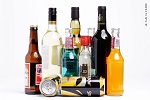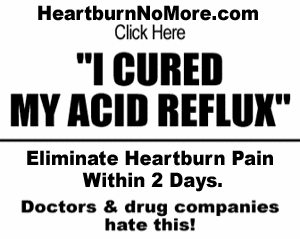
Can Alcohol Cause Heartburn?When you feel a burning sensation or warmth in the chest, chances are there that you are suffering from heartburn. This common ailment is caused mainly by stomach acid. However, different people may have varied reasons for experiencing it, though problem with food digestion is a common symptom in most such patients. Heartburn should be treated in its preliminary stages, as a patient suffering from this disease continuously may eventually get affected by more serious complications like ulcers and even have problems in performing routine tasks.  Many people ask if alcohol can cause heartburn or not. It has been seen that people
who drink alcohol regularly often complain of heartburn. Several researches have also suggested that
alcoholism and heartburn are related. In fact, many doctors opine that the chance of an alcoholic suffering
from this disease is greater than his/her non-alcoholic counterpart. Many people ask if alcohol can cause heartburn or not. It has been seen that people
who drink alcohol regularly often complain of heartburn. Several researches have also suggested that
alcoholism and heartburn are related. In fact, many doctors opine that the chance of an alcoholic suffering
from this disease is greater than his/her non-alcoholic counterpart.Before going into details of how alcoholism can cause heartburn, it would be prudent to understand both these diseases separately and then find out how alcoholism can trigger the other. Heartburn – what is it?
When you eat food, it passes through a tube called the esophagus (food pipe) to reach the stomach. A tight muscle is present in the lower region of esophagus, which is called LES or Lower Esophageal Sphincter. It prevents the food from traveling up the esophagus. However, sometimes the LES does not close tightly enough, which allows partly digested materials from the stomach to climb back up into the esophagus. This causes irritation in the esophagus, and leads to heartburn and other symptoms.
Knowing Alcoholism
Alcoholic dependence is a serious disease as patients suffering from it have a strong urge to drink irrespective of the negative consequences that such act gives rise to. Despite facing relationship disputes and health problems, addicts often find it difficult to let go off their drinking habits. Alcoholism may be caused due to serious psychological problems like elevated stress levels, depression, and inadequate coping mechanisms, or due to social factors such as the influence of peers, family, and society.
How Alcoholism and Heartburn are related
Excessive alcohol intake gives rise to various reactions in different people. Heartburn is a common occurrence in people who are in the habit of consuming alcohol in large quantities over a long period of time. Though most people drink alcohol as they feel it allows them to relax, it can cause the lower esophageal sphincter (LES) to open, which in turn will trigger heartburn. In fact, excessive alcohol intake is known to boost the relaxation of LES, thus allowing stomach acid to climb out the esophagus and damage it. Such movement of stomach acid out of the stomach and up the food pipe triggers a burning sensation in the chest.
Consumption of alcohol can also cause erratic progressive contractions when you swallow food. Such unbalanced rhythm of swallowing is likely to give the stomach acid a chance to enter into the esophagus and act as the origin of heartburn.
People who drink wine and beer in large amounts only help to boost the acid production in their stomach. Alcohol is also known to make the esophagus sensitive to acid. Inflammation or swelling in the protective lining of esophagus is yet another downside of uncontrolled alcohol intake. All these factors give rise to a painful burning sensation just behind or below the breastbone, which often climbs up to reach your chest and may even spread to your throat or neck.
Since alcohol can cause peptic ulcers to develop and obstruct the healing process of ulcers that are already present, its intake can damage the stomach's protective layer, which may eventually give rise to heartburn.
Precautionary steps to be taken
Now that it has been established how the intake of alcohol, especially in large amounts, can cause acid reflux symptoms, it pays to take some precautionary measures to steer clear of the pain. Though giving up on uncontrolled drinking binges would be ideal, you can take these steps if you are not in the mood to give up on your drinking habits entirely:
· Use club soda or water to dilute your alcoholic beverages. · Choose small amounts of wine or non-alcoholic beer. · Stick to moderate amounts of alcoholic beverage intake. 2-3 beers, 1-2 mixed drinks, and 12 to 16 ounces of wine are the suggested amounts to play safe. · Remember the alcoholic drinks that worsen your condition and steer clear of them as much as possible.
| |||
*Disclaimer: The information found on this website should not be used as a replacement for professional medical care for the diagnosis, prevention, or treatment of reflux. Please consult with your general practioner or pharmacist before attempting to use any medication (prescription or OTC) or following any of the treatment methods mentioned. This information is provided solely to help you become as informed as possible about the acid reflux condition and its symptoms. |
Home About Us Privacy Contact Us Site Map
© Copyright www.acidrefluxsymptomsnow.com , 2010. All Rights Reserved.
Content Network: asbestos compensation | lower back pain relief


